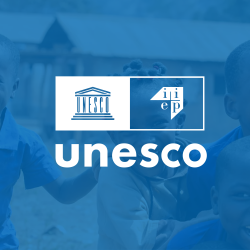Project description
IIEP is committed to ensuring the right to education for all. Their training courses enable education officials and specialists from all over the world to learn how to design, plan, and improve their education systems.
The IIEP micro-credentialling system is aligned to the European Credit Transfer Accumulation System (ECTS). It offers participants flexible ways to accomplish learning. Participants can take individual courses at different points in time and accumulate the number of credit points required to obtain diplomas with the IIEP Global Campus.
KIC role
We supported IIEP with
- defining a methodology to unbundle its existing courses and present them as micro-credentials based on best-practice in the field;
- ensuring that the micro-credential strategy of the institution aligns with its global mission, vision and strategy;
- implementing the micro-credential strategy through the suggestion of feasible and immediately actionable recommendations;
- supplementing these recommendations with relevant standards for transparency and recognition
- ensure acceptance of the micro-credential programme by stakeholders

